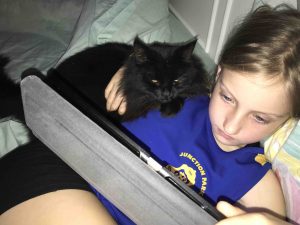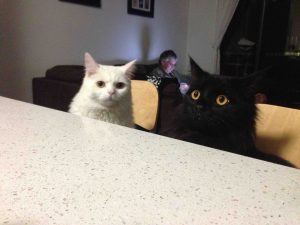I have previously bemoaned the absence of warm-blooded pets in my emotionally crippling childhood.
 Growing up in late-1960s suburbia, my parents thought dogs should run on farms like their dogs had, and cats were a nuisance.
Growing up in late-1960s suburbia, my parents thought dogs should run on farms like their dogs had, and cats were a nuisance.
So I had a turtle.
Turtles were inexpensive, popular, and low maintenance, with an array of groovy pre-molded plastic housing designs to choose from. Invariably they would escape, only to be found days later behind the couch along with the skeleton of the class bunny my younger sister brought home from kindergarten one weekend.
But eventually, replacement turtles became harder to come by. Reports started surfacing that people with pet turtles were getting sick. In 1975, the U.S. Food and Drug Administration (FDA) banned commercial distribution of turtles less than 4 inches in length, and it has been estimated that the FDA ban prevents some 100,000 cases of salmonellosis among children each year.
Maybe I got sick from my turtle.
Maybe I picked up my turtle, rolled around on the carpet with it, pet it a bit, and then stuck my finger in my mouth. Maybe in my emotionally vacant adolescence I kissed my turtle. Who can remember?
Then, one day in 1986, my now ex-wife and at the time veterinary student brought home two kittens from the clinic.
I named them Clark and Kent.
And as I was writing a science column for the university student paper in my spare time, I spent about three months writing about cat behaviour.
I’ve been fortunate to have cats and or dogs ever since.
Rachel Nuwer of the New York Times writes that in the perennial battle over dogs and cats, there’s a clear public relations winner.
Dogs are man’s best friend. They’re sociable, faithful and obedient. Our relationship with cats, on the other hand, is often described as more transactional. Aloof, mysterious and independent, cats are with us only because we feed them.
 Or maybe not. On Monday, researchers reported that cats are just as strongly bonded to us as dogs or infants, vindicating cat lovers across the land.
Or maybe not. On Monday, researchers reported that cats are just as strongly bonded to us as dogs or infants, vindicating cat lovers across the land.
“I get that a lot — ‘Well, I knew that, I know that cats like to interact with me,’” said Kristyn Vitale, an animal behavior scientist at Oregon State University and lead author of the new study, published in Current Biology. “But in science, you don’t know that until you test it.”
Research into cat behavior has lagged that into dogs. Cats are not social animals, many scientists assumed — and not as easy to work with. But recent studies have begun to plumb the depth of cats’ social lives.
“This idea that cats don’t really care about people or respond to them isn’t holding up,” Dr. Vitale said.
In a study in 2017, Dr. Vitale and her colleagues found that the majority of cats prefer interacting with a person over eating or playing with a toy. In a 2019 study, the researchers found that cats adjust their behavior according to how much attention a person gives them.
 Other researchers have found that cats are sensitive to human emotion and mood, and that cats know their names.
Other researchers have found that cats are sensitive to human emotion and mood, and that cats know their names.
They recruited owners of 79 kittens and 38 adult cats to participate in a “secure base test,” an experiment commonly used to measure bonds that dogs and primates form with caretakers.
A similar test is also used for human infants. It is based on the theory that infants form an innate bond with caretakers that manifests as a strong desire to be near that person.
In the experiment, which lasted six minutes, cat and kitten owners entered an unfamiliar room with their animals. After two minutes, the owner left the room, leaving the cat or kitten alone — a potentially stressful experience for the animal. When the owner returned two minutes later, the researchers observed the feline’s response.
About two-thirds of cats and kittens came to greet their owners when they returned, and then went back to exploring the room, periodically returning to their owners. These animals, the researchers concluded, were securely attached to their owners, meaning they viewed them as a safe base in an unfamiliar situation.
We have two fluff-balls currently, siblings, one is a service cat that cuddles when she senses you are sad and constantly sleeps with our daughter, and the other is a hormonal mess of male anxiety, hates to be touched and meows constantly beginning at 4 a.m. or really any time.
